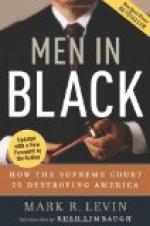THE WORRIED CLIENT
Like the financial backer of a play, the client does not figure largely on the stage. If he does appear as an actor he may have a small speaking part, but he is not a star. He owns the show, and if it does not pay he loses, or if he wins he gets a proportion of the profits. Consequently he hires the best talent he can afford. The star performer is the lawyer, but as the producer the client has not only the choice in picking the theme, but the play is about him and his troubles. Great drama consists in a conflict of emotions. The emotions of the two opposing clients make a court drama. The acting and the staging is the art of the lawyer.
The philology and derivation of the word client is significant. It does not mean the principal, but a follower. It is derived from the Latin word cluere and the Greek _+klyein+_, meaning to hear; one who listens, a follower.
An ordinary man has a horror of the entanglement of the law. A hard-headed man of business says he would rather pay a claim of $250 or less, although he had never seen the claimant, and the suit was utterly unfounded, than go to court. He would rather lose the same amount than bring a suit involving the trouble and expense of hiring a lawyer, requiring witnesses to waste their time, and wasting his own in waiting for a trial, which might possibly result in a judgment against him on a perfectly just debt, either through the miscarriage of justice, or the chance of not collecting the judgment. The typical feeling is that of the stockbroker who said: “Only blackmailing suits go to court, for if sensible men have a dispute they know it is easier and cheaper to settle it outside.”
The client is in a darkened room. He only partially sees what is going on. If the whole case is thrown out of court on a question of law or a technicality he feels more than resentful against the judge; he is revengeful; he will spend every cent he has in the world appealing and showing that judge how wrong he is. In the first place, it is a disgrace.
“Why,” he says, “the judge just kicked us out of court. We didn’t have a chance; the judge must have been friends with the other side. Do you call that justice? I’d like to get that judge outside and talk to him man to man. No one can get a square deal in court.”
The feeling of the client toward the courts and the lawyer is one of distrust, mingled with respect. He will say:
“I would rather take a friend’s word as a gentleman that he would do something than to have it put in the form of a forty-page contract drawn by the best lawyer in the country. I could rely on the word of a gentleman, but if any question on that contract came into court, some clever lawyer would find a loophole to get out of it.” Yet the fact is that the world does require legal documents. An interesting speculation would be to consider what proportion of the world’s business affairs is conducted on a basis which could be provable or have the authority of enforcement in a court of law. The proportion of the business transacted in a so-called legal manner is insignificantly small.




